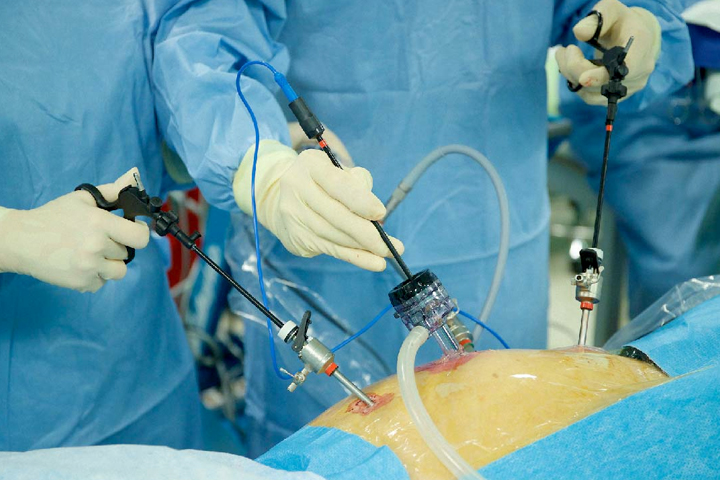
Gynaecological Cancer Surgery By Laparoscopy
Laparoscopic surgery, also known as minimally invasive or keyhole surgery, can be used for certain gynecological cancer surgeries. This approach offers several benefits compared to traditional open surgery, including smaller incisions, reduced blood loss, shorter hospital stays, and faster recovery times.
Here are some common gynecological cancer surgeries that can be performed using laparoscopy:
- Laparoscopic Hysterectomy: Hysterectomy is the surgical removal of the uterus and is commonly performed to treat uterine cancer (endometrial cancer). Laparoscopic hysterectomy involves the removal of the uterus through small incisions in the abdomen, aided by a laparoscope and specialized instruments. It may be performed with or without the removal of the ovaries and fallopian tubes, depending on the stage and type of cancer.
- Laparoscopic Lymphadenectomy: In certain gynecological cancers, such as endometrial or cervical cancer, the cancer may spread to the nearby lymph nodes. A laparoscopic lymphadenectomy involves the removal of some or all of these lymph nodes to determine if cancer has spread beyond the primary site.
- Laparoscopic Ovarian Cancer Surgery: For early-stage ovarian cancer or certain benign ovarian tumors, laparoscopic surgery may be used to remove the affected ovary (oophorectomy) or both ovaries (bilateral salpingo-oophorectomy).
- Laparoscopic Cervical Cancer Surgery: In early-stage cervical cancer, laparoscopic procedures can be used for radical hysterectomy or trachelectomy (removal of the cervix while preserving fertility for young women with early cervical cancer).
- Laparoscopic Pelvic Exenteration: In cases of advanced gynecological cancer that involves multiple pelvic organs, a pelvic exenteration may be necessary. This procedure involves the removal of the uterus, vagina, nearby lymph nodes, and surrounding organs such as the bladder or rectum. Laparoscopic-assisted pelvic exenteration is a technically challenging procedure that is performed by highly skilled surgeons in specialized centers.
It's important to note that not all gynecological cancer surgeries are suitable for laparoscopy. Factors such as the stage of cancer, tumor size, and the patient's overall health will influence the choice of surgical approach. In some cases, open surgery (laparotomy) may be preferred or required for more extensive cancer removal or if there are concerns about the safety and effectiveness of laparoscopic surgery.
Laparoscopic gynecological cancer surgeries are typically performed by gynecologic oncologists, who are specialists with advanced training in the surgical management of gynecological cancers. These surgeons have the expertise to determine the most appropriate surgical approach and ensure the best possible outcomes for patients.
As with any cancer surgery, it's essential for patients to have a comprehensive discussion with their healthcare team about the treatment plan, potential risks, benefits, and expected outcomes. Individualized care and close follow-up are crucial elements in the management of gynecological cancers.